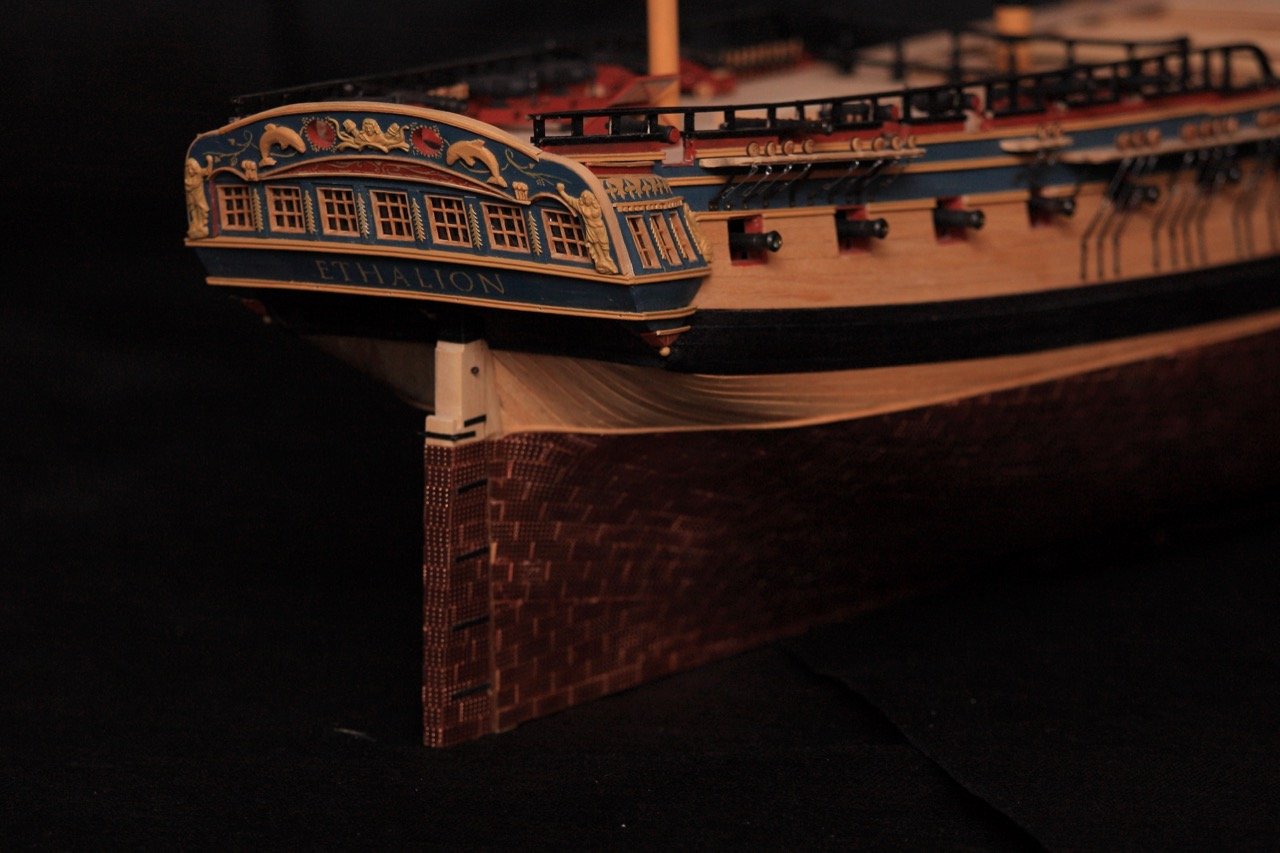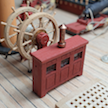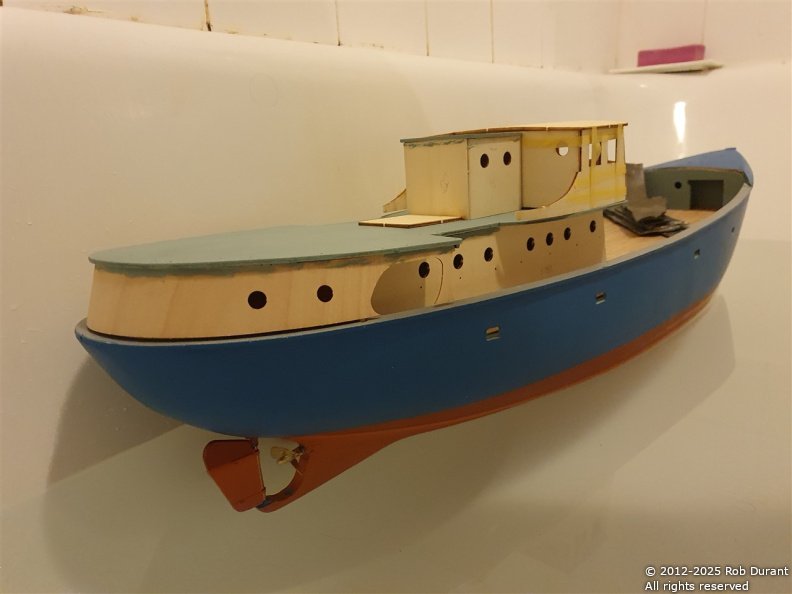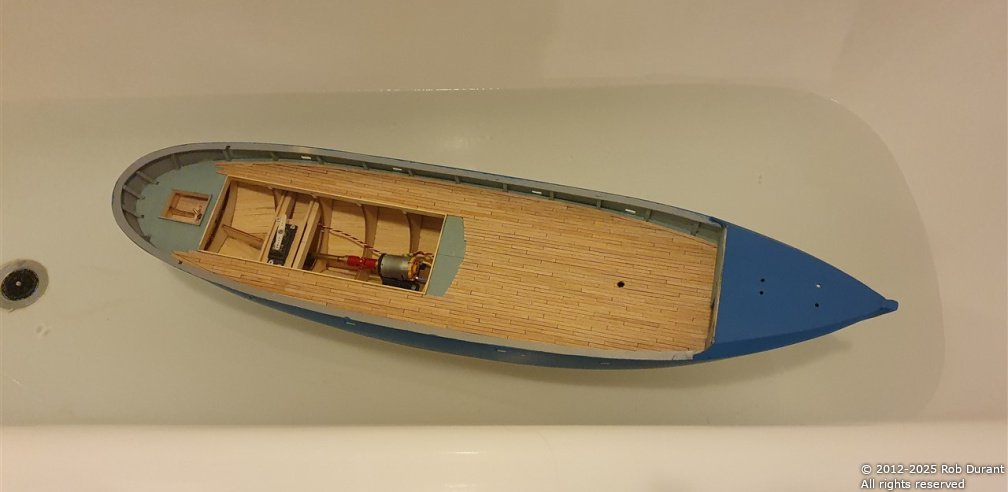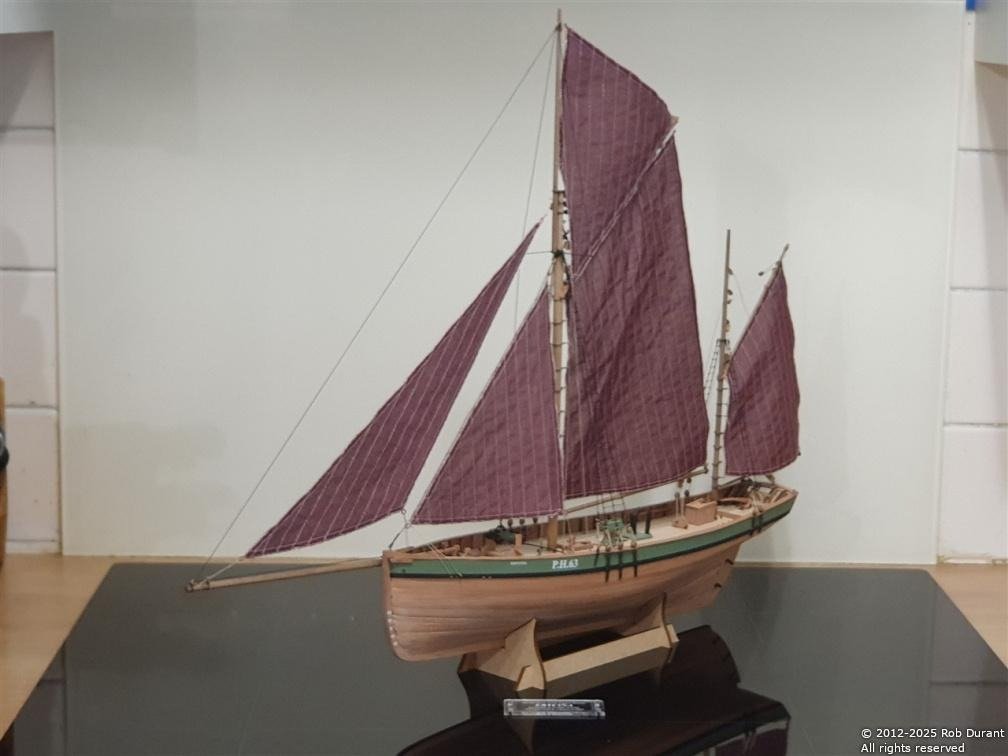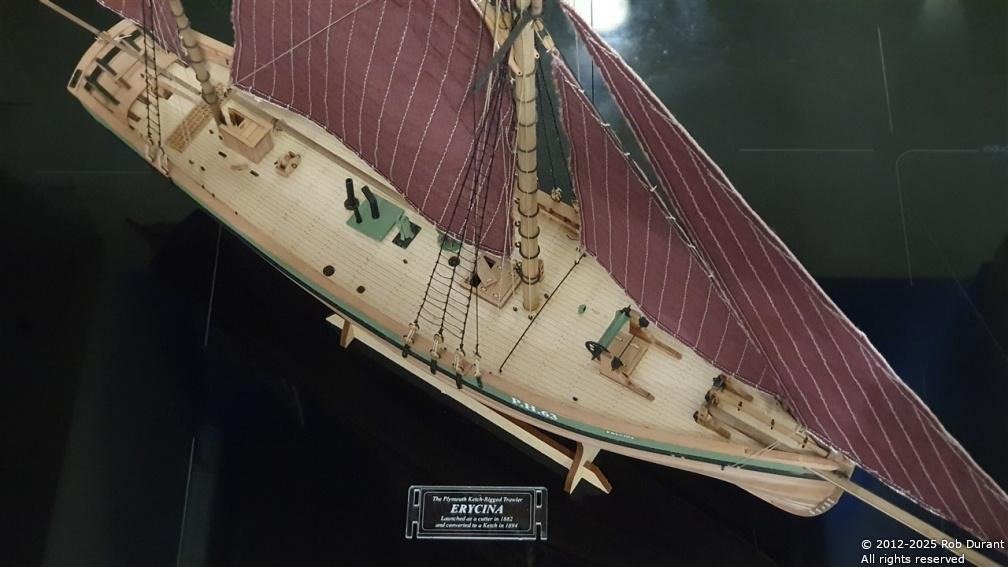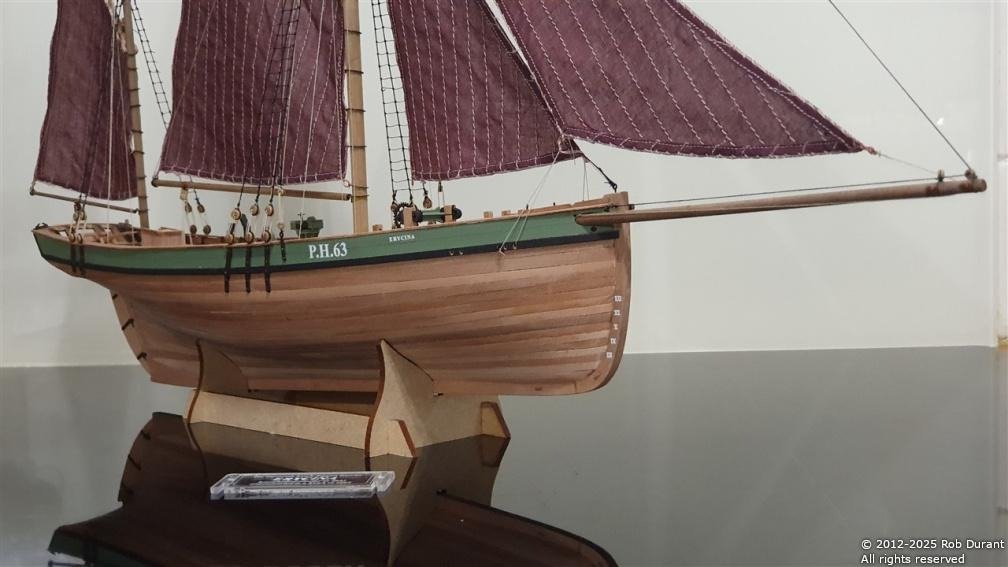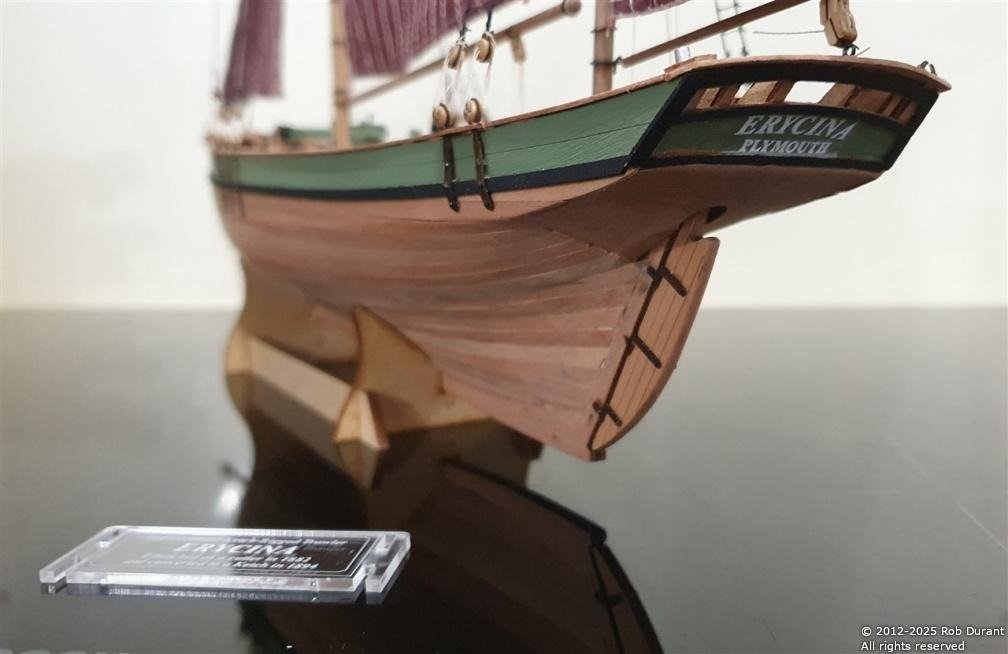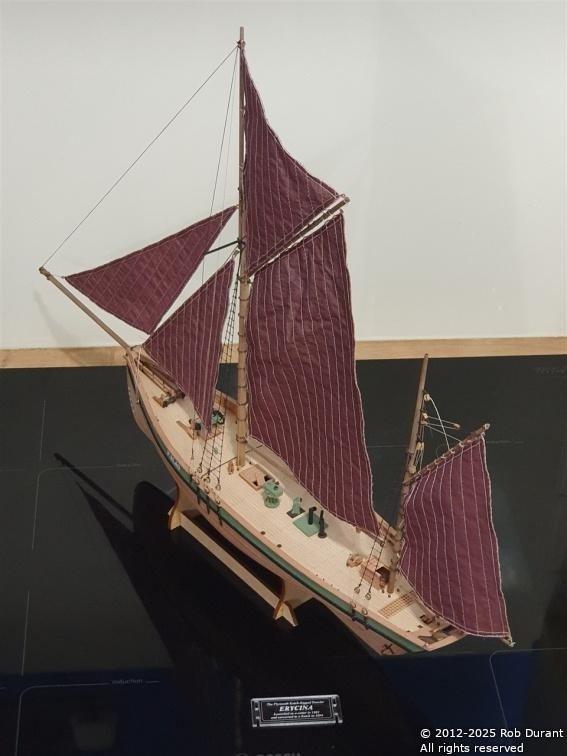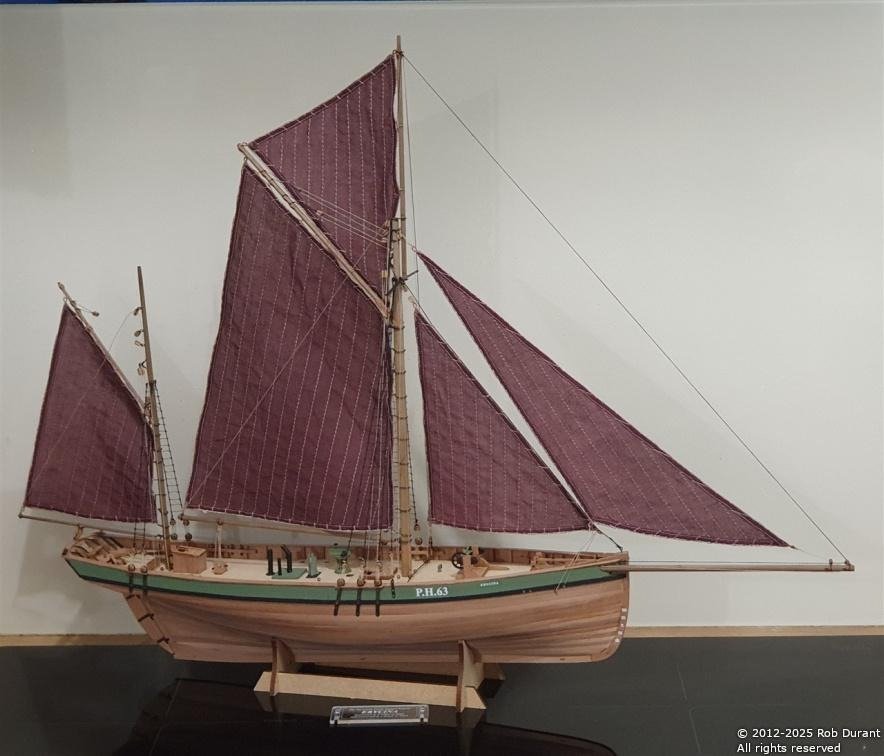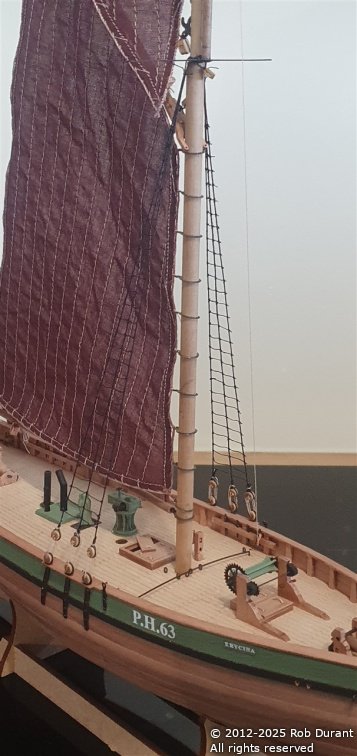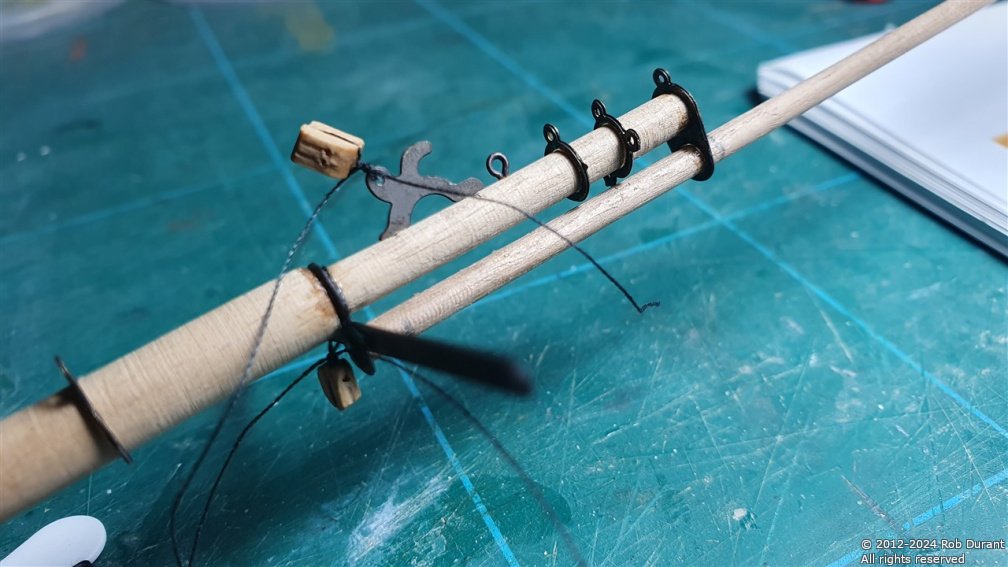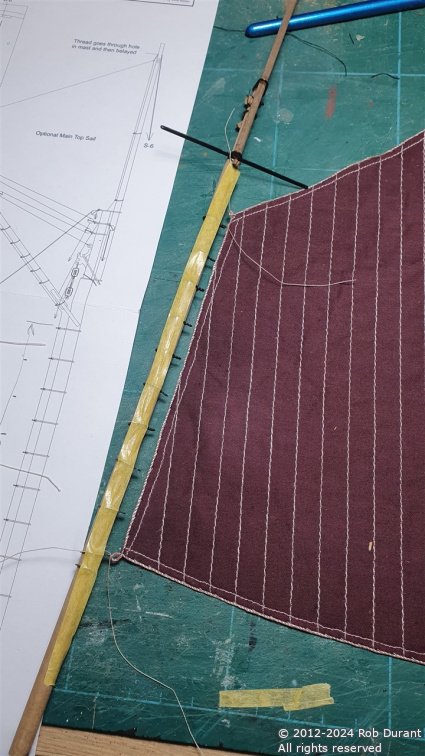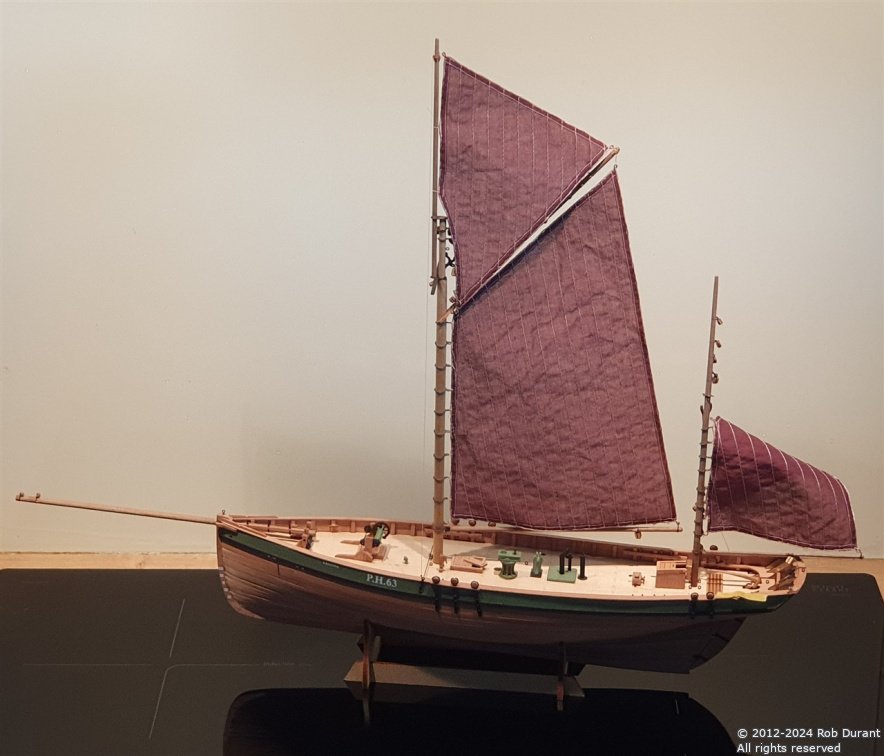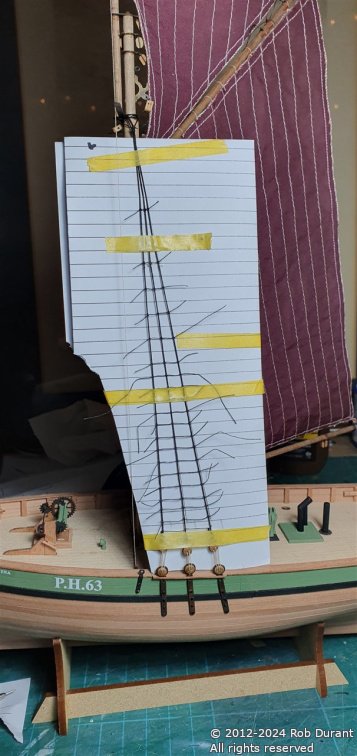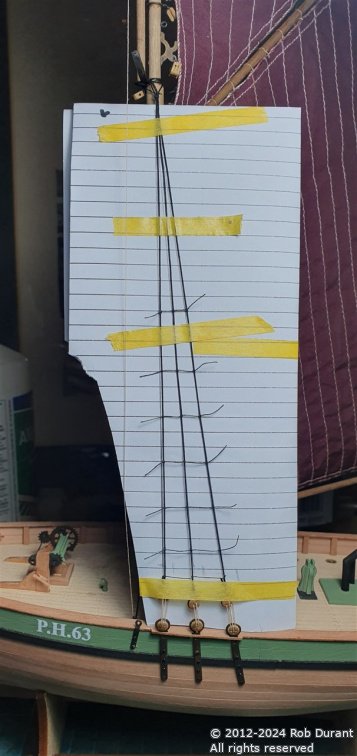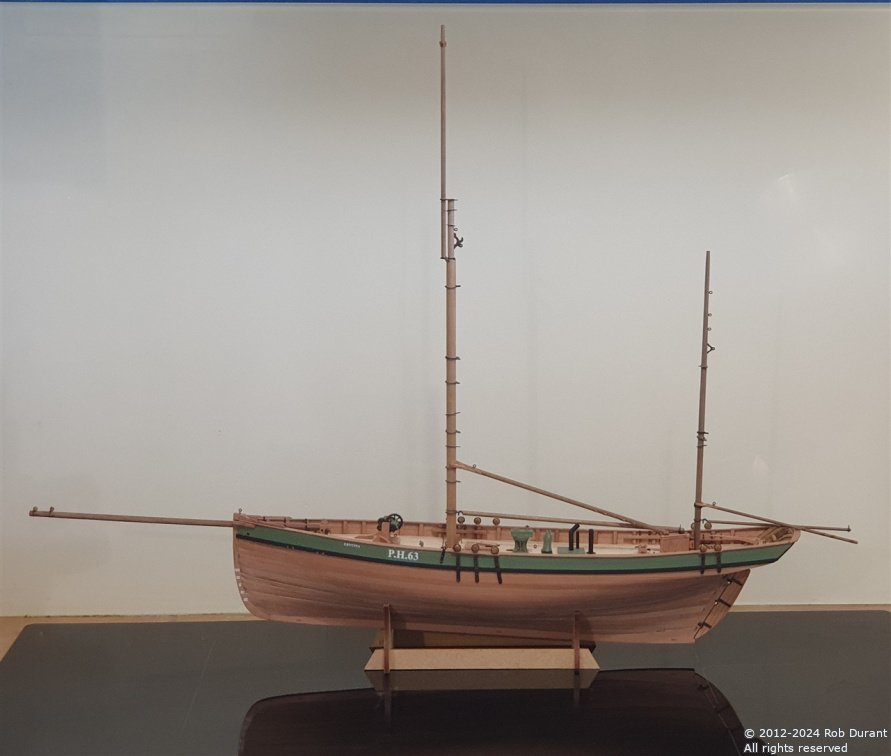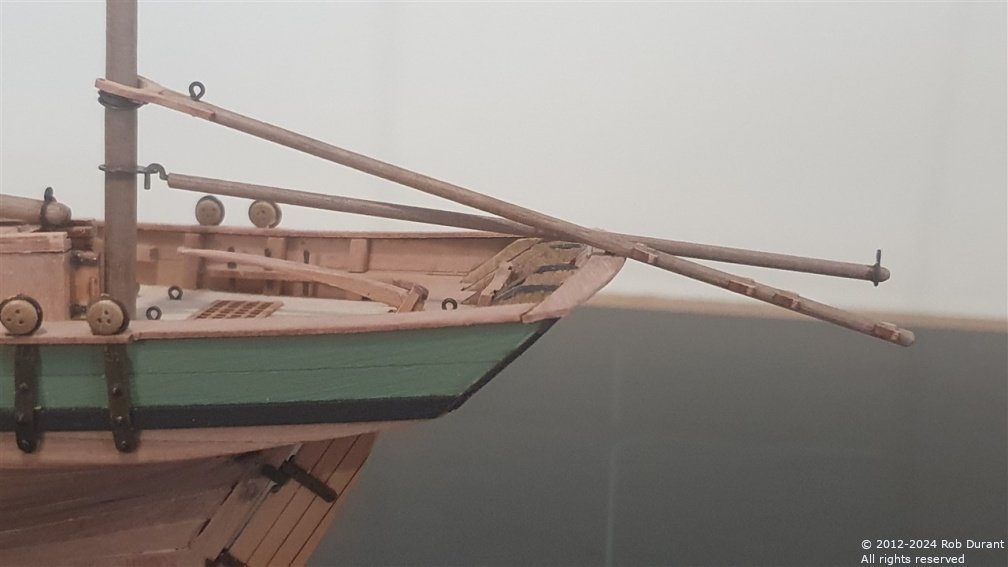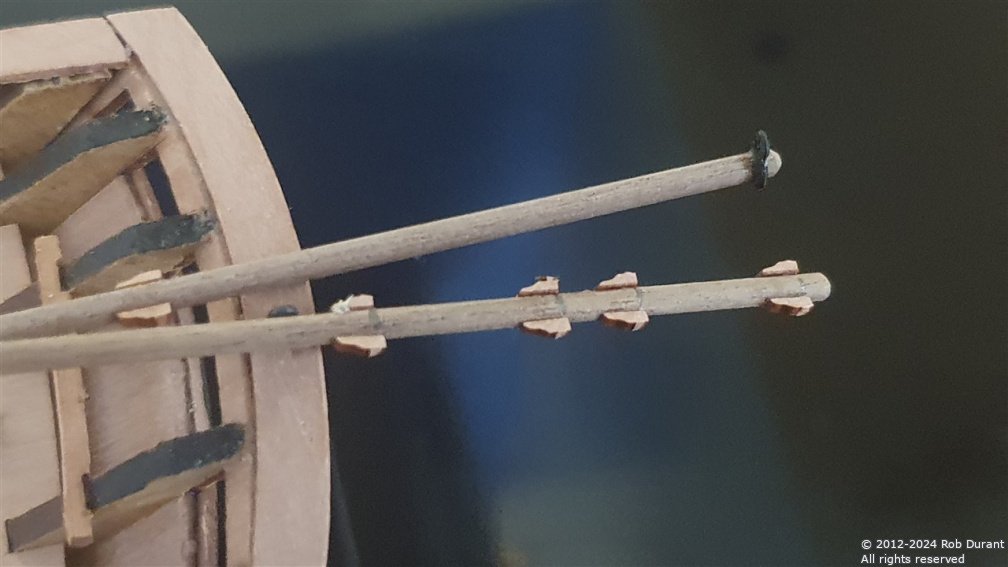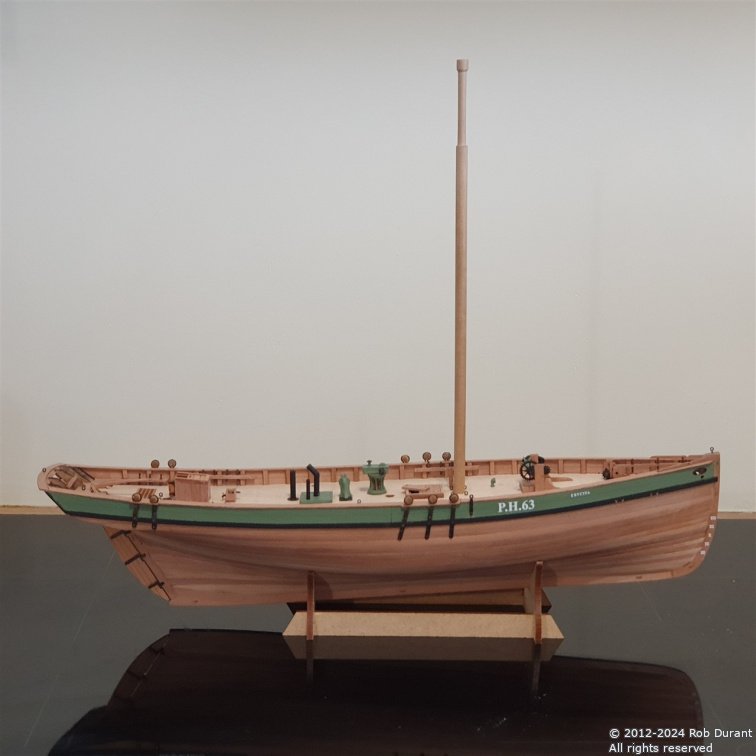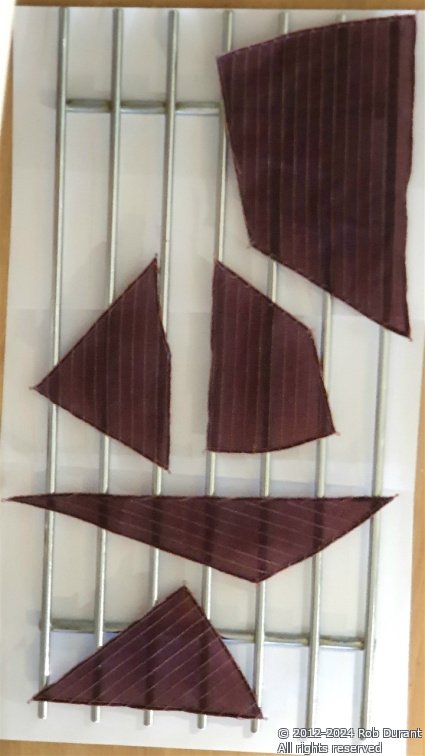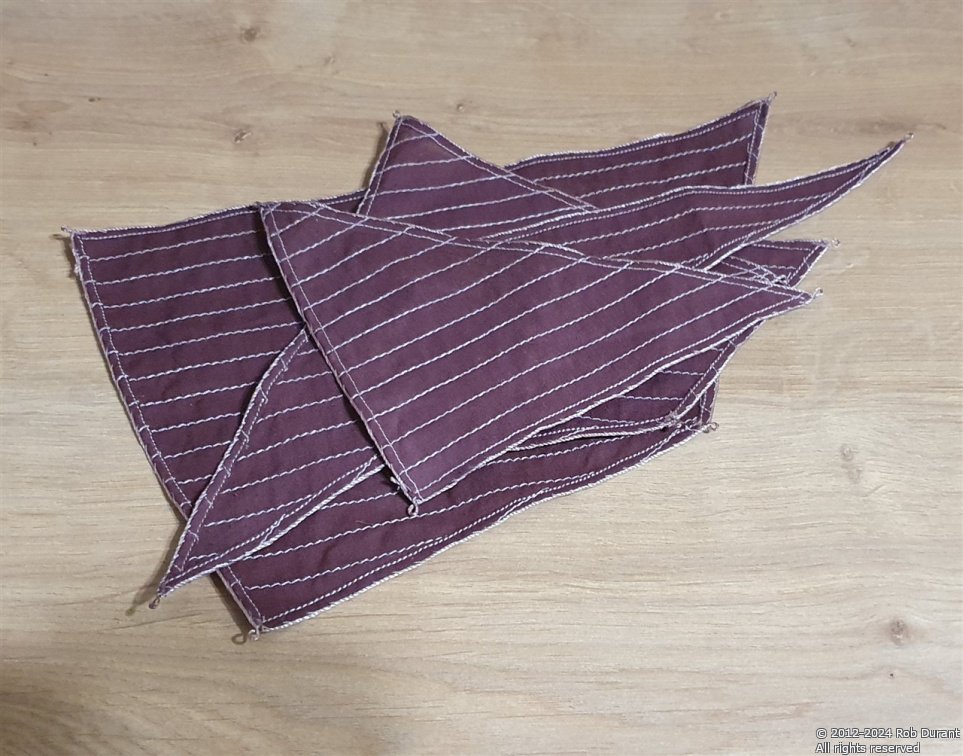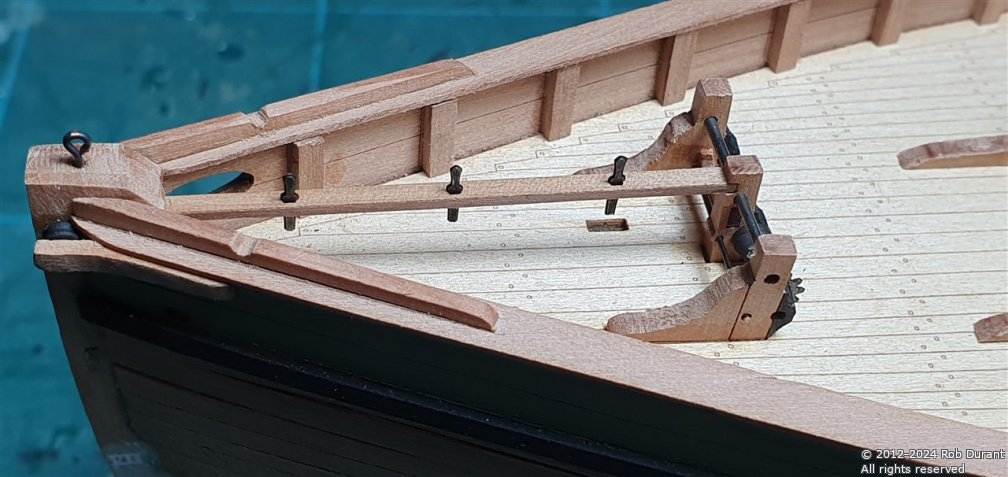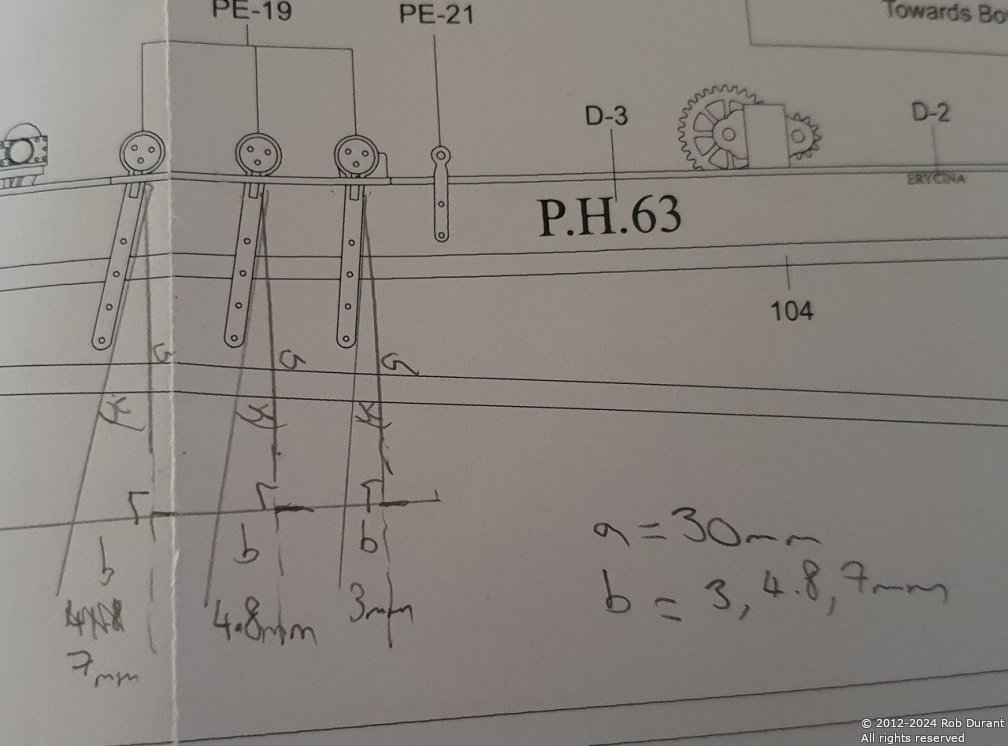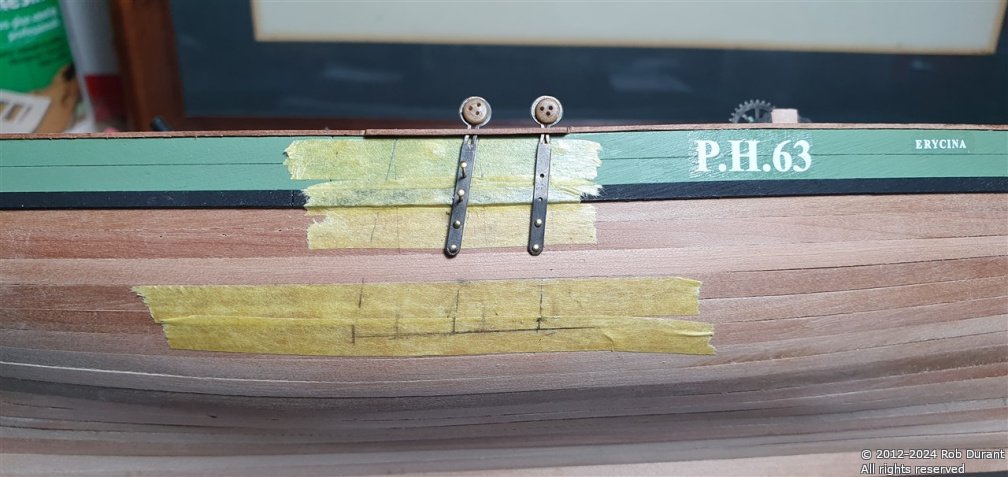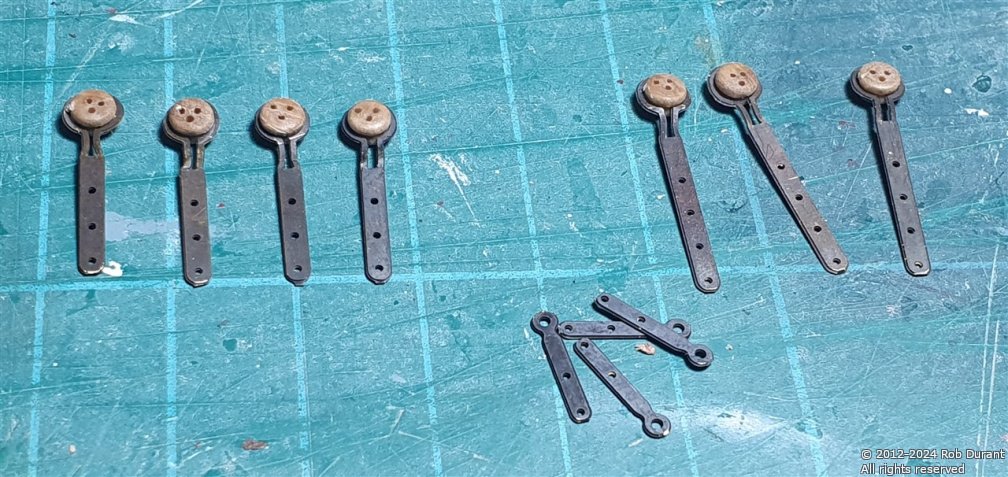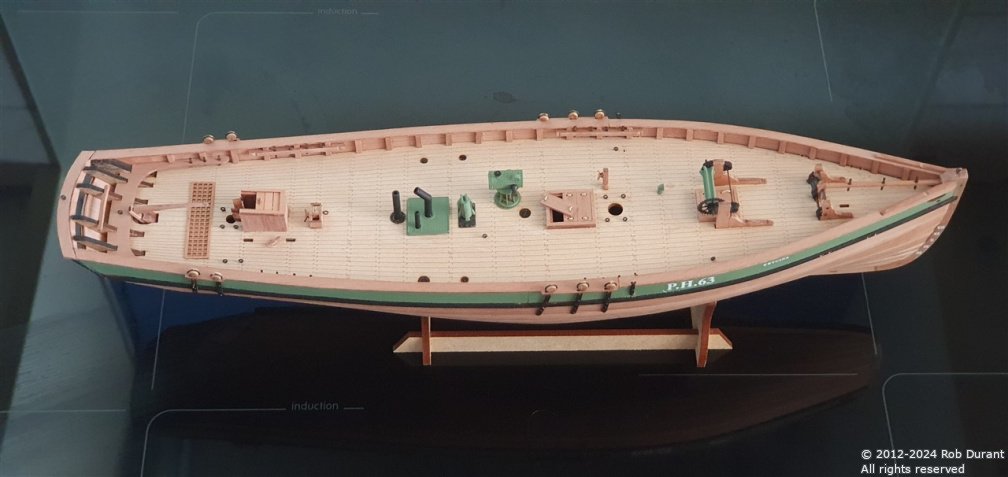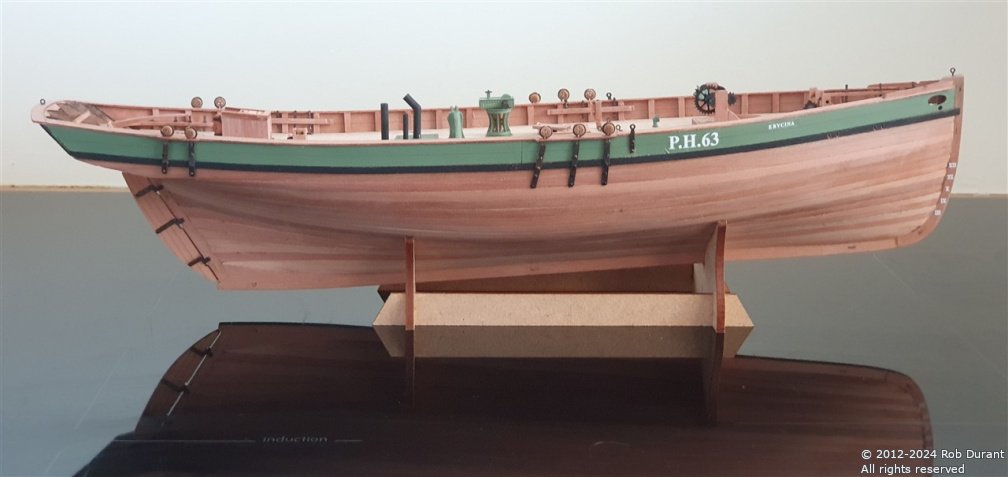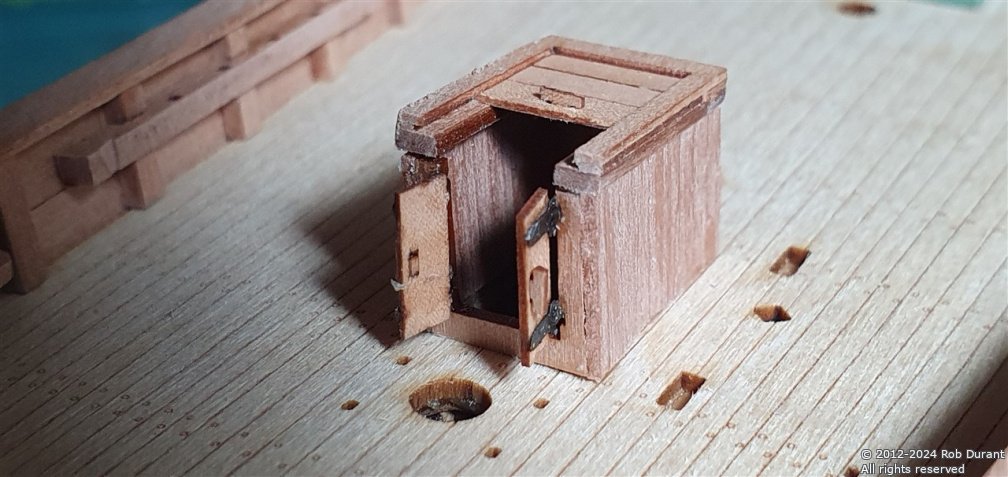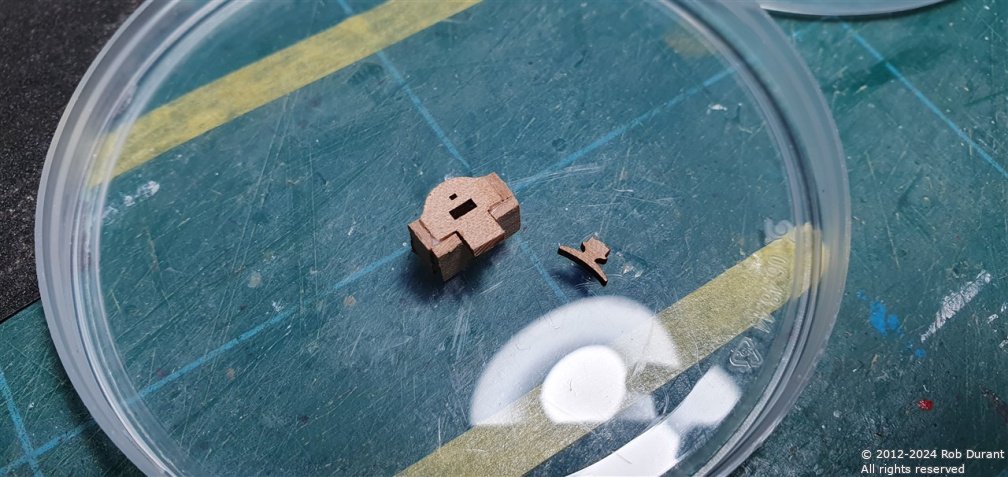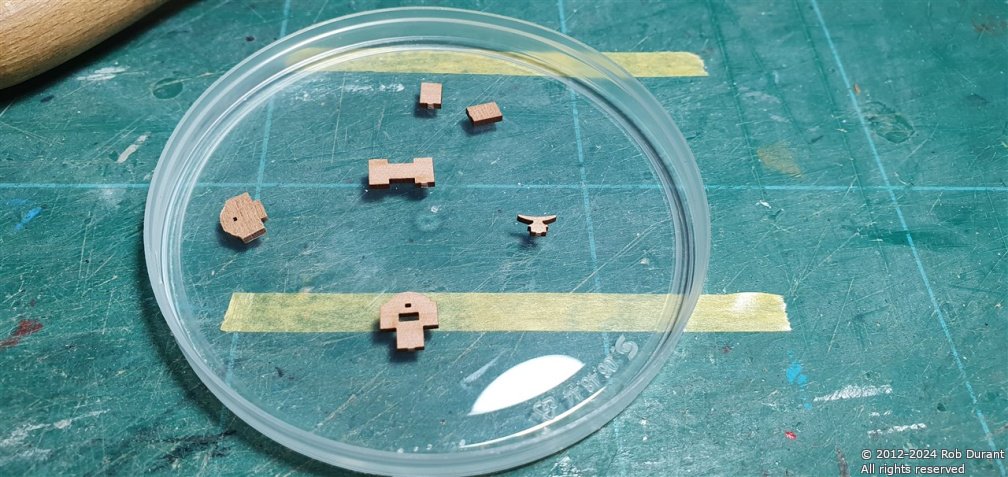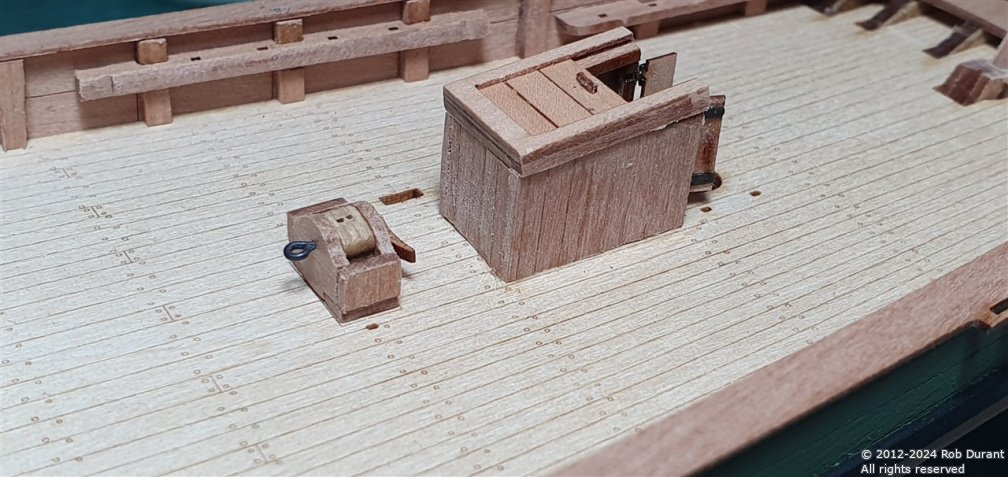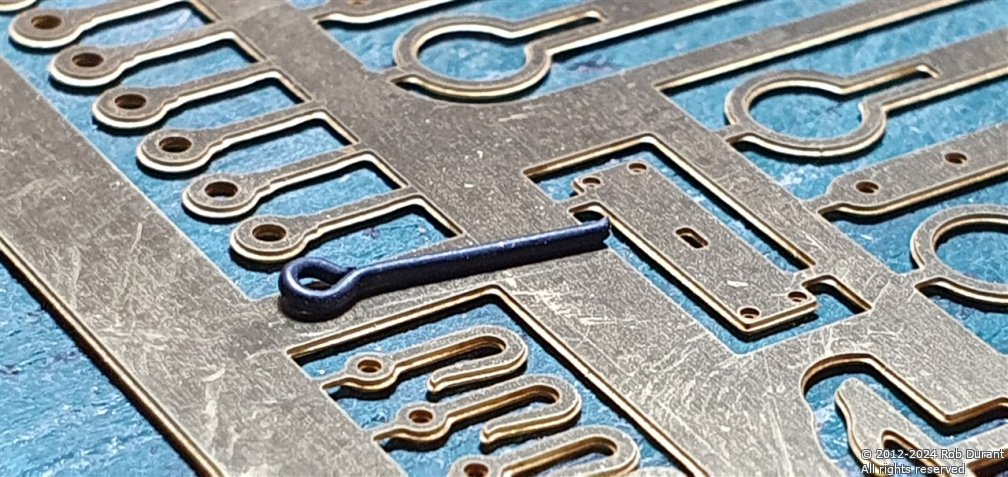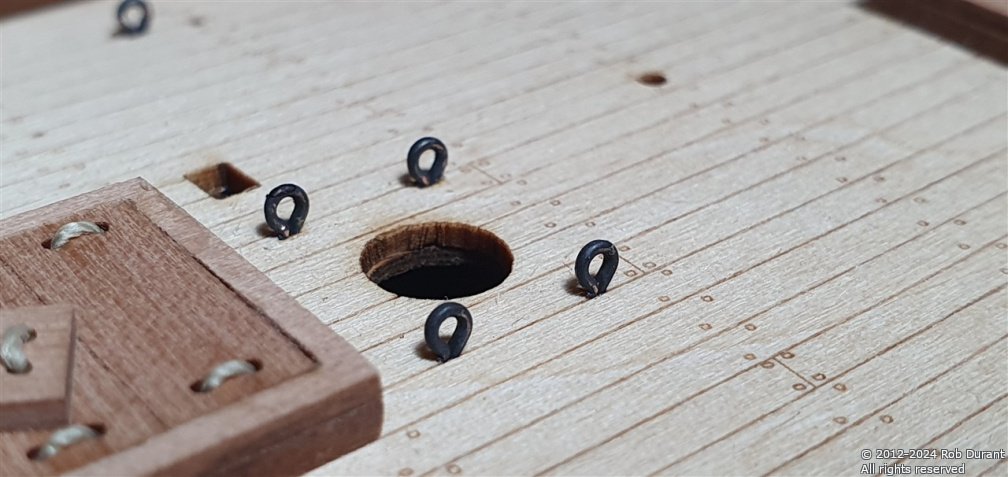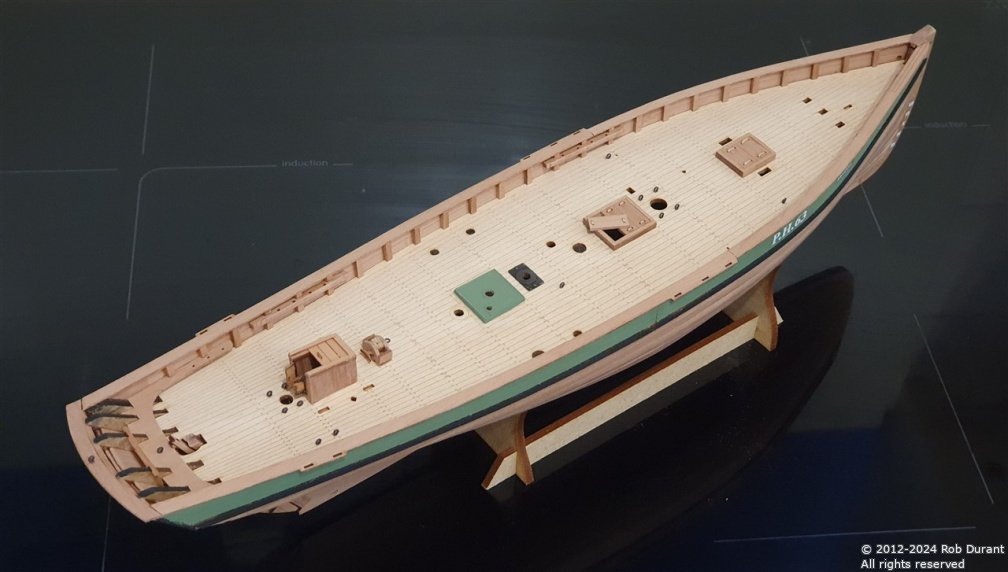-
Posts
842 -
Joined
-
Last visited
Content Type
Profiles
Forums
Gallery
Events
Everything posted by robdurant
-
vexillology - had to ask my wife about that one... (being a classics teacher, she's handy to have around).... logos from the Greek for word, so study... and vexillum from the Roman banner... think the Eagle standard the soldiers marched behind and protected at all costs.... so.... mash latin and Greek together and you get the study of flags. I love the world we live in. Just fascinating. Thanks for the new word, Chris, and all the best with this stunning new model
-
When I (briefly) sailed a One Metre class yacht, the 2.4GHz receiver was just sat in a plastic pot along with the battery just beneath the deck, and it worked fine. That was a fibreglass hull and deck (albeit with patches). The orientation shouldn't make any difference unless you're pushing the signal to its limits, as I guess it changes relatively anyway as you move the transmitter around, and as the boat sails in different directions. The one article I found about this (again from a radio sailing perspective) talks about having problems at a distance of 180 metres because of a carbon fibre hull and rain reducing the signal strength.... so that gives you some idea of the capabilities of modern radio control transmitters and receivers. (Here, if you want to go down the rabbit hole... https://www.onemetre.net/Build/2.4GHz/24GHz.htm )
- 44 replies
-
- Nordkap
- Billing Boats
-
(and 1 more)
Tagged with:
-
Nordkap's looking wonderful. The paint looks just right to me. I think the idea with the antenna is to keep it above the waterline, and away from things that are electronically noisy (I.e. the motor)... Since the boat is not carbon fibre it shouldn't make a Faraday cage, so you should be okay having the antenna inside the model, and unless you have to I would advise not changing the antenna wire unless you have to. I believe they are matched by length to the frequency. I have always just had the receiver in a tray up towards the deck away from the motor and rudder servo. Having said that I have more experience with 27Mhz and 40MHz... my tests with 2.4GHz seem okay though. A distance test is always a good idea... plug everything in, connect transmitter to receiver, and then get someone to watch the bost while you walk away from it using the transmitter. See how far you get before it stops responding. It'll give you some idea what to expect on the water. Also, doing a first sail (or indeed sailing in general) somewhere where you can wade out and retrieve the model is a great comfort. Hope that's helpful, and apologies if I'm repeating things you already know. Rob
- 44 replies
-
- Nordkap
- Billing Boats
-
(and 1 more)
Tagged with:
-
Aah, you've nailed the bit that completely stumped me. That blue colour. I searched and searched and was never really happy with my choice. Your pick looks just right.
- 44 replies
-
- Nordkap
- Billing Boats
-
(and 1 more)
Tagged with:
-
Hi Matt, It's a lovely model my dad built a version of Mary Ann (the same hull shape as the krabbenkutter / cux87 etc...) in the 1970s and it has a very different hull shape to the model you have here. It has a rounded stern and more curved run of the deck and a smooth curve cross section from deck to keel. I wonder whether this model has a scratch built superstructure? It was certainly built by someone who gave it a lot of love, care and attention, and was confident and able from all I can see. I have also finished building the hull of nordkap myself, and again the hull is much more curved at the stern, with a pronounced covered deck at the front. Looking at your model it has a chine hull, with the "creases" running down the sides. More like the Kadet and White Star hulls made by billing boats, although these were plastic hulls as I recall. Indeed if you built up the deck edge walls (bulwarks) you might end up with something similar in shape to your model. That's as much as I can tell you, I'm afraid. But congratulations on a lovely model! The other possibility may be that this is a model of a billings bay shuttle (I.e. Billings as a place name - see https://www.knowbc.com/limited/Books/Encyclopedia-of-BC/B/Billings-Bay ), but it is entirely designed and made by the original owner (i.e. not a kit at all). In that case, you've ended up with a lovely model that is entirely unique. Was there a particular reason you were looking for parts? Hope that helps Rob
-
Brilliant stuff! Great to see you making such good progress.
- 44 replies
-
- Nordkap
- Billing Boats
-
(and 1 more)
Tagged with:
-
Fantastic progress. That looks really neat.
- 44 replies
-
- Nordkap
- Billing Boats
-
(and 1 more)
Tagged with:
-
Looking great, Sal. Do think about access to the top of the rudder post once fitted, too. I cut an extra hatch in, which ends up hidden under the superstructure. It will allow you to attach the rudder horn (tiller effectively) easily when you get to that stage. You can see it at the stern in the photo attached... the hole is much more easily cut out before the false deckis attached, and you may decide to modify the frames around that part, too so that you get a good run for the arm between the rudder horn and the servo . I can't remember if I had to. Apologies if I'm teaching granny to suck eggs Rob
- 44 replies
-
- Nordkap
- Billing Boats
-
(and 1 more)
Tagged with:
-
A great start. You should be okay for vibration as the rpms should be farily low - it isn't a race boat - but if you want to be doubly cautious, making a part that sits inside bh6 that acts as a support for the prop tube could also damp any vibrations that might form?
- 44 replies
-
- Nordkap
- Billing Boats
-
(and 1 more)
Tagged with:
-
Great to see this log. All the best for your build nice hat, too. We live on top of a big hill, so in the middle of winter a hat like that can come in handy. I imagine on fishing grounds in the North Sea or Atlantic it would be essential wear.
- 44 replies
-
- Nordkap
- Billing Boats
-
(and 1 more)
Tagged with:
-
Wow, what a handsome model. I fear you are ahead of me and I will therefore be little help to you at this stage, but I wish you every success in finishing the task.
-
Hi Morten, That's my log Chris has linked to above... sadly I had to pause the build having suffered a brain injury that put the mental requirements somewhat beyond my current abilities, but I still have all the plans (albeit packed away in the loft), and the model sat on my desk next to me. If I can be any help, I will gladly try. Am I right in thinking that you are looking for runs of rigging (i.e. which side of spars / other lines things pass), belaying point details, positions of yards when not carrying sails, etc? To my recollection I never really quite reached that point... indeed it was that task that I found most daunting in this model. As you'll see in the pictures on the log above, I placed the sails but they have no rigging attached, and there is no other running rigging at present. Ultimately, (and apologies if I get this wrong) as a minimum, I guess you want halyards to hold the yard up from the centre, braces for horizontal planar direction from the ends of the yards, and lifts for the vertical alignment going to the ends of the yards? The difference between rigged and unrigged is then that the yard is in its lowered position. The final part of the puzzle would be where to belay all of those lines... some through a block on the deck and then up to the centre pin rails (halyards?), some onto the belaying pins down the sides of the deck. Which side do they belay to? Is it higher yards further forward or aft? All of those would begin to make a plan of sorts.... and for the rest, well.... it's a collier trying to make a profit, not a royal navy vessel trying to pass inspection 😉 Rob
-
Thank you Bob @Knocklouder and David @dunnock
- 47 replies
-
- Erycina
- Vanguard Models
-
(and 1 more)
Tagged with:
-
Well I haven't stopped to write down much about the rigging, but there are far more capable modellers on this forum who have written excellent guides. I have, however, completed this model, which is something of a triumph! Just eight days short of a year since my journey with encephalitis began, to have recovered to the point where I was able to finish this model is both a personal win, and a great testament to the model that Vanguard Models have made here. Anyway - enough talk. Here are some pictures. I'm deeply grateful to all those who have been an encouragement and who have spurred me on through this build. And I'm thrilled with the results. I'm marking this one done Rob
- 47 replies
-
- Erycina
- Vanguard Models
-
(and 1 more)
Tagged with:
-
Thanks Andrew, I managed to get the other shroud on the mainmast done today, so things are really chugging along now Onto the mizzen shrouds next. Rob
- 47 replies
-
- Erycina
- Vanguard Models
-
(and 1 more)
Tagged with:
-
A belated happy Christmas and a very happy new year to you all! Some final details were added to the main mast. I put the mast hoops on and tied the sails to the yards before attaching them to the mast hoops in situ. Masking tape was used to ensure the mast hoops didn't move too far while they were attached. And a photo with the sails roughly in place... Progress has slowed significantly as I've retaught myself to do stays with rigging, dead-eyes, and lanyards, and attached the sails to the masts. I had to relearn how to tie ratlines (despite having tied in excess of three thousand of them previously!) - and I'm finally getting into the swing of things. I find that putting a lined sheet behind the ratlines (with the angle of the shrouds drawn onto it), helps in a number of ways. Firstly, it helps me to get the knots tied without the shrouds getting pulled gradually inwards by the knot tension (where they are, I can stretch it back out again as it goes). Secondly, when I thread the rope to make the knot, it gets pinched between the shroud and the paper, holding it in place while I move my fingers / tweezers to the other side. The only thing to watch out for is that you don't stick the ratlines to the paper when you glue them in place with watered down glue. Using only a little glue, and running a metal ruler between the shrouds and the paper shortly after gluing seem to keep this under control. Thanks as always for looking in. Progress may not be fast, but I'm happy enough with how it's going. And given how 2024 was, it's amazing I've achieved any of it, really. Every blessing for 2025! Rob
- 47 replies
-
- Erycina
- Vanguard Models
-
(and 1 more)
Tagged with:
-
I've finished shaping the masts and spars, fitted the bowsprit, and added all of the hardware... Next up comes the rigging in earnest In retrospect, I wish I'd used a round file to sand the inner edges of these small parts on the spars so they fitted up against the spar better when glued in place, rather than being a flat surface gluing onto a round one. I'm sure I used to know that - it just got lost somewhere along the line! Otherwise, I'm pleased with progress. Thanks as always for the likes and encouragement. I'm really beginning to think I can bring this build home, now Slow and steady! Rob
- 47 replies
-
- Erycina
- Vanguard Models
-
(and 1 more)
Tagged with:
-
Looking very smart. One tip I've found helpful in the past is to mask up the lines and then paint on some clear matt varnish. If this bleeds it doesn't matter. You can then paint the black over it, and it's less.likely to bleed as the gaps are already filled by the varnish. I've used this trick a few times and not had any issue. With that said, your tidying up efforts look very neat. Rob
-
And... onto the masts. I haven't cut down the top of the mast yet, but couldn't resist seeing how it looked in situ.
- 47 replies
-
- Erycina
- Vanguard Models
-
(and 1 more)
Tagged with:
-
It's been a productive week. So here's an update. I've finished off all the deck furniture, and added the belaying pins (blackened photo-etch), and the chain plates... The chain plates were marked out from the plans using masking tape to protect the hull as I put pencil marks on to show where they should go. Once I was happy with the arrangement, I drilled a hole in each to locate the first pin, and then removed the masking tape. The remaining holes were drilled, and the provided pins were fixed in, having first blackened the heads. (It's worth noting that on the top holes of the forward and rear chainplates, the hole shouldn't end up sticking out on the far side of the bulwark. To avoid this, I shortened the pin before gluing it in place with a small dab of superglue. I've also dyed the sail set (these are the premium sails sold separately by Chris at Vanguard, and they really do add to the model). I used Rit dyes for this. About two pints of water were boiled in a big stainless steel pan, then having given it a few minutes to start cooling, I added two teaspoons of Rit Wine powder and Rit Dark Brown powder, half a teaspoon of salt, and a tiny dribble of washing up liquid. Having thoroughly stirred the mixture, the sails were added, ensuring they were completely submerged and wet through. About 30 seconds later, I took out the sails, and lay them out to remove the worst of the liquid. They were then placed on a cooling rack to dry off, turning occasionally. I was really pleased with how these turned out. When I build Lady Isabella (the Zulu from Vanguard's range), I felt the sails ended up a little light... this time, I've managed to get a deeper, richer colour. I'm almost onto the masts now, so soon I'll get the chance to see how they look on Erycina! Thanks for all the likes and encouragement Rob
- 47 replies
-
- Erycina
- Vanguard Models
-
(and 1 more)
Tagged with:
-
Hi, A little bit more progress. I've added the details to the companionway, and installed it in place. I've also constructed the main sheet housing assembly and the eyelets in the deck. I replaced the photo-etch for these with wire versions (which I had left over from previous builds), as they're more rounded, and I think I prefer the look overall. Whether you'd really ever notice the difference is another matter entirely, but I'll know A (very-zoomed-in) comparison of the wire and the photo-etch eyelets: And installed... I haven't currently glued the eyebolt holding the double-block in place as I wasn't sure how easy it would be to rig, and I wanted to keep the option open to get more access if I wanted it. It amazes me how much slower building is these days. When I built Lady Isabella, I was working six-day weeks and it took me four months. But progress is progress, and I'm enjoying building this model immensely! Thanks for looking in Rob
- 47 replies
-
- Erycina
- Vanguard Models
-
(and 1 more)
Tagged with:
About us
Modelshipworld - Advancing Ship Modeling through Research
SSL Secured
Your security is important for us so this Website is SSL-Secured
NRG Mailing Address
Nautical Research Guild
237 South Lincoln Street
Westmont IL, 60559-1917
Model Ship World ® and the MSW logo are Registered Trademarks, and belong to the Nautical Research Guild (United States Patent and Trademark Office: No. 6,929,264 & No. 6,929,274, registered Dec. 20, 2022)
Helpful Links
About the NRG
If you enjoy building ship models that are historically accurate as well as beautiful, then The Nautical Research Guild (NRG) is just right for you.
The Guild is a non-profit educational organization whose mission is to “Advance Ship Modeling Through Research”. We provide support to our members in their efforts to raise the quality of their model ships.
The Nautical Research Guild has published our world-renowned quarterly magazine, The Nautical Research Journal, since 1955. The pages of the Journal are full of articles by accomplished ship modelers who show you how they create those exquisite details on their models, and by maritime historians who show you the correct details to build. The Journal is available in both print and digital editions. Go to the NRG web site (www.thenrg.org) to download a complimentary digital copy of the Journal. The NRG also publishes plan sets, books and compilations of back issues of the Journal and the former Ships in Scale and Model Ship Builder magazines.

